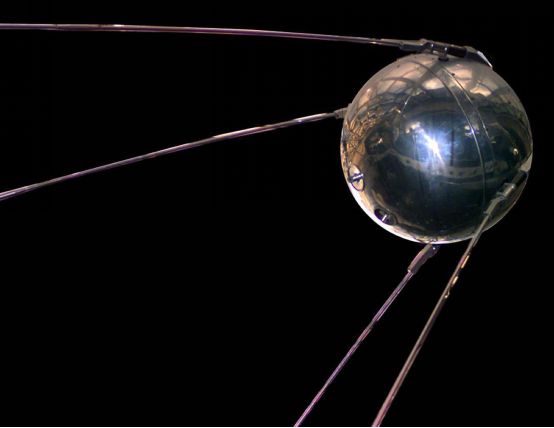For a wealthy country like the US which came out of World War Two with a booming economy the arms race was still a hideously expensive luxury.
对于美国这样一个富有的并且从二战后经济实现了腾飞的国家来说,军备竞赛也是一种可怕而奢侈的开销
For the USSR still reeling from the great patriotic war, the nuclear arms race cancelled out Khrushchev's early emphasis on consumer goods.
而苏联仍然处于从卫国战争中的艰难恢复之中,核军备竞赛就撤销了赫鲁晓夫开始对于消费品生产的重视
As long as the Soviet people thought the communist workers paradise was on the horizon, maybe even by 1980,
只要苏联人民认为共产主义的工人天堂即将来临,或许就在1980年
they could accept military spending as a means to this end.
他们就可以接受在军事上的花销,认为这是达成此目的的一种方法

And through the middle 1950's the Soviet Union's prestige remained high,
整个20世纪50年代中期,苏联的威信一直很高
spurred on by Khrushchev's secret speech exposing Stalin's cult of personality and his crimes,
尤其受到赫鲁晓夫秘密演说的促进,报告中揭露了斯大林的个人崇拜和所犯罪责
the communist party of Hungary tried desperately to create a true democratic multi party government.
匈牙利的共产党很努力地尝试创建一个真正的民主多党派政府
Fearing that the contagion of democracy might be spreading to other client states and this is the domino theory again,
因为害怕追求民主的思想可能会传染给其他的附庸国,这又一次体现了多米诺理论
the USSR intervened powerfully and brutally, directed by the young Soviet Ambassador Yuri Andropov, we'll see him again,
苏联很强势并残暴地进行干预,由年轻的苏联大使尤里,安德罗波夫领导,我们之后会再提到他
Soviet tanks smashed the Hungarian revolution to bits.
苏联的坦克将匈牙利的革命碾的粉碎
Soviet national pride took a quantum leap in 1957 when Sputnik the world's first space satellite sent into orbit.
苏联的国家自豪感在1957年达到了高峰,当时世界第一颗人造卫星“伴侣号”被送到了太空轨道上



